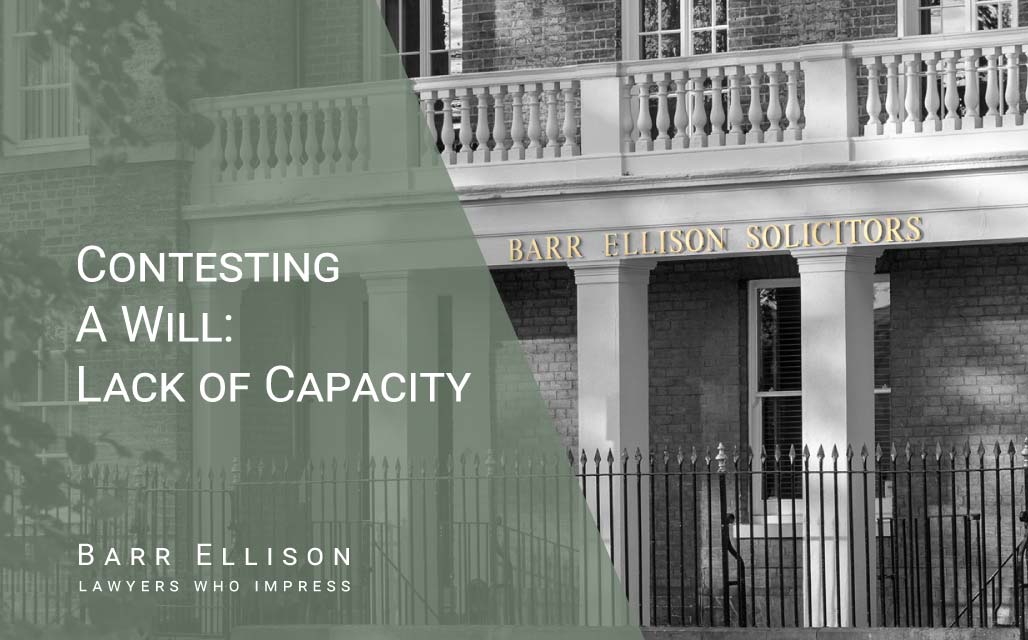One way in which to challenge the validity of a Will is to allege the testator did not have capacity to make it. Related articles are:
Any person who is over the age of 18 and of sound disposing mind may make a Will.
Disputes about whether the testator has capacity to make a Will either when giving instructions for it or upon signing are increasing. People are living longer and more are developing some form of dementia. Research for Dementia UK indicates that there are hundreds of thousands of people suffering from dementia in the UK of which the greater part are 65 years or older.
Lack of Capacity
A lack of capacity can arise from head injuries, substance abuse, psychiatric disorders as well as dementia and other medical conditions.
The test of capacity in probate actions remains that set down in 1870 by the case of Banks v Goodfellow. The testator in this case had been confined to a lunatic asylum for some months. Upon discharge he was convinced that he was being pursued. He managed his own financial affairs and gave instructions for a Will. The Court found his Will to be valid because the delusions from which he suffered had no influence over his making the Will.
Test of Capacity
The test laid down in this case is in essence the testator shall understand:
- The nature of the act and its effects. This does not require the testator to have capacity for all purposes merely for making a Will and the complexity of the Will will be relevant here.
- The extent of the property of which he is disposing. This does not mean the testator must be able to compile an inventory of his assets. A general idea is good enough.
- The claims to which he ought to give effect and to comprehend those. So can the testator recall those who are likely to have a claim and appreciate that some claimants may have a greater claim than do others.
In addition the Testator must not be influenced by any disorder of the mind, such that when disposing of his property he does things which in sound mind he would not.
Presumption of Capacity
Unless the Will is irrational on its face, the Court will presume capacity. If there is raised a real doubt (supported by evidence) as to capacity, then the burden of proving capacity falls on those seeking to prove the Will.
The Court is likely is to be assisted by the evidence of:
- Statements made by the testator at the time of making his Will
- Evidence of any witnesses to the testator’s signature
- Evidence from the solicitor who prepared the Will
- The extent to which the Will accords with the testator’s character, background and previous Wills
- The testator’s conduct and general habits
- The treatment of the testator by friends and relatives
- Expert evidence from medical practitioners such as a GP or psychiatric geriatrician.
By Sarah Payne, Litigation Solicitor
